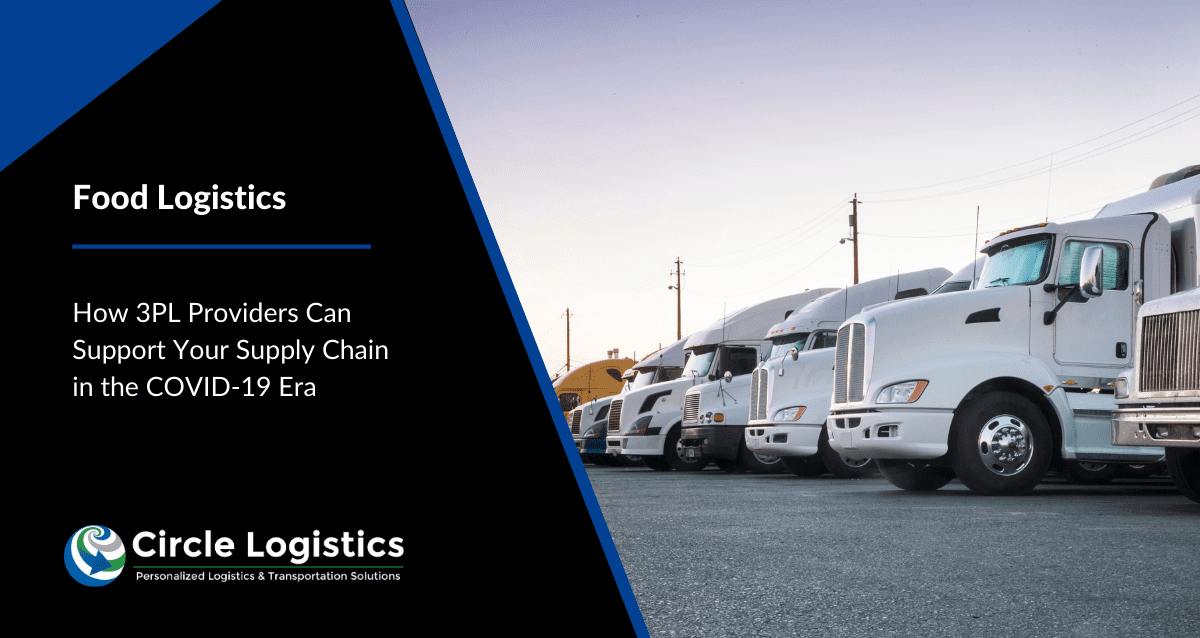by Karl Fillhouer VP, Sales & Operations Circle Logistics
Here’s how a third-party logistics provider can help food and beverage processors shift their models, navigate new regulations and secure a reliable fulfillment center.
When the Coronavirus disease (COVID-19) hit last year, countless food and beverage companies were forced to seek out new opportunities to mitigate industry disruption. While restaurants pivoted to carryout and delivery services, businesses like distilleries and breweries shifted their production to hand sanitizer.
Here’s how a third-party logistics (3PL) provider can help food and beverage processors shift their models, navigate new regulations and secure a reliable fulfillment center.
Moving freight forward in an uncertain environment
The pandemic has upended global supply chains, forcing people to lean more heavily on their regional supply chains and make changes on the fly. In response, organizations need a 3PL partner to create workable logistics solutions and adapt as conditions change in this current environment.
As of 2019, the global 3PL market was already poised to grow to an estimated $1.3 trillion by 2024. Now, it’s clear that 3PL providers are necessary to help meet demand and grow bottom lines, all while organizations work to seize their share of capacity. A 3PL can help shippers:
1. Drive cost savings
Managing logistics spend is even more important right now amid economic uncertainty. Capacity is still tight, and many shippers face rising costs while competing for a shrinking pool of carriers. For example, the spot rate market for flatbed and reefers hit $2.59 a mile in September, the highest since 2018.
An experienced 3PL with a full range of services can help find solutions that are both cost-effective and efficient.
2. Keep shipments running on time
According to McKinsey, trucking volumes spiked by nearly 30% in early 2020 due to pandemic panic buying. That tight capacity market means not only rising costs, but also potential delays as every organization jostle to get goods out the door.
A 3PL provider can provide capacity, specialized equipment and a full range of modes to ensure operations keep running smoothly.
Technology also plays a key role in overall efficiency, as the 3PL partner can help track loads in real time and gain better control of freight.
3. Follow best practices and gain peace of mind
Supply chain management requires a constant stream of rapid-fire decisions, especially in a volatile environment like the COVID-19 crisis. A reliable 3PL partner provides hands-on support and informed partners to help organizations make important decisions quickly and confidently.
Staying ahead of the curve
COVID-19 has created complex and unanticipated challenges for professionals across the supply chain. Despite uncertain conditions, 3PLs can help companies stay on top of shifting supply chain requirements, save time and money and capitalize on new market opportunities. More than ever, a 3PL provider that can address new needs as they crop up is essential to help organizations go the distance – no matter the circumstances.
Read the full article at Food Logistics.


